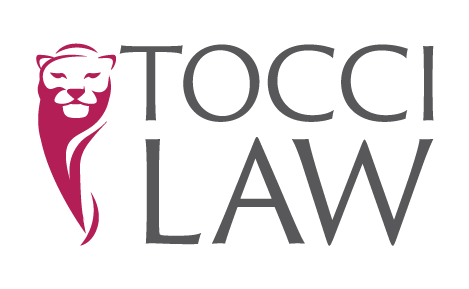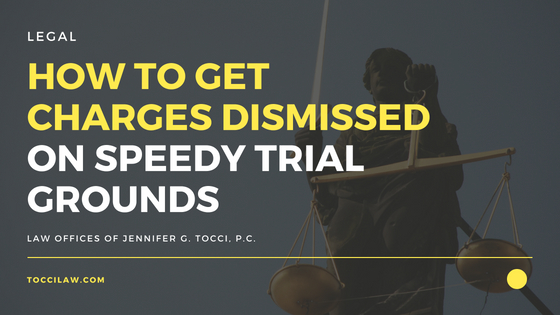We seem to all know that we have a right to a speedy trial, but what does this actually mean? What is a speedy trial? What happens if you don’t get what you’re entitled to? Can you get your case get dismissed? If your case does get dismissed, can you be re-charged?
The Sixth Amendment of the U.S. Constitution provides that each citizen has the right to a speedy trial. But what did the authors of the Constitution intend to mean as “speedy?” Under federal law, there is no precise designation of what constitutes a speedy trial. Under New York State Law, what is considered a speedy trial is more clearly defined in order to uphold each New Yorker’s constitutional rights.
Why Do We have this Right?
The right to a speedy trial is afforded to us in order to prevent the government prosecutor from delaying a criminal trial arbitrarily or indefinitely. It forces the prosecutor to build a case against you within a reasonable amount of time. It also aids your ability to defend yourself against criminal charges. For example, witnesses may not be able to remember facts as clearly if they have to wait too long to testify at trial, which may hurt your case and give the prosecution an unfair advantage.
How Do I Know My Right to a Speedy Trial was Violated?
The factors considered to determine if your right to a speedy trial were violated are evaluated by the totality of the circumstances and include:
- Length of the delay
- Reason for the delay
- Whether you asserted your right
- Prejudice to you
The New York Laws express specific time restraints for a speedy trial. If you are accused of a Felony, the state must provide you with a hearing or trial date no more than 180 days from the date the alleged criminal activity occurred- unless you’re charged with a Class A Felony. For a misdemeanor charge, depending on the seriousness of the crime, the time ranges from 60 to 90 days. If you’re charged with a violation, the hearing date/ trial must be within 30 days. Traffic infractions are not subject to the speedy trial protections.
If you’re incarcerated, instead of merely charged, you must be released on bail or your own recognizance if you are held beyond a certain period of time. For a felony, you can only be held for 90 days or you have to be released on bail or your own recognizance. For a Class A misdemeanor the government has 30 days; For a Class B Misdemeanor the government as 15 days, and for a violation, it has 5 days.
[Sidebar: Delays caused by the defendant do not count towards speedy trial defenses. Therefore, requesting conferences and adjournments does not count towards the time calculated.]
How is the Time Calculated?
The speedy trial time starts to run from the day after the accusatory instrument is filed with the court. If you were given a desk appearance ticket instead of arrested, the time starts from the arraignment. A grand jury filing an indictment also starts the clock. [Sidebar: Time spent by the government before an arrest does not count towards a speedy trial defense. Instead, the delays before an arrest count towards the statute of limitations for the particular crime.]
Once the District Attorney/prosecutor files its certificate or readiness (declaring it is ready to proceed to trial) the government has satisfied its burden to provide a speedy trial if completed within the permissible time fame. If you are not ready to proceed to trial by the time that the prosecutor is, you may be able to request an extension of time- but that time will not count against the government once it is ready. However, the government is required to maintain its readiness.
What are Exclusions to the New York Speedy Trial Laws?
The reasons listed here are some of the circumstances where the time delay cannot be used to assert a defense that you were not provided with your right to a speedy trial. As we discussed above, delays caused by or requested by you are not counted towards the speedy trial time. This is true whether you’re requesting an adjournment (extension of time), time to negotiate with the District Attorney/prosecutor, or you fail to appear. Your failure to appear because you are incarcerated in another jurisdiction does not excuse your absence for purposes of having the time delay count against you instead of the government. Almost always, not having an attorney representing you does not count towards to government’s time to provide a trial. Delays caused by court proceedings in your case such as pre-trial motions and hearings are exempt from the time. A period in which a family offense petition is before the family court until an accusatory instrument or indictment is filed is exempt. The time calculated towards an Adjournment in Contemplation of Dismissal (ACOD) is also exempt.
Furthermore, the New York speedy trial release provisions do not apply when you’re being held on other charges where the speedy trial time has not elapsed. Additionally, if you are serving a term of incarceration for another criminal case, or apprehended for violating a conditional release the speedy trial provision does not apply.
How Does it Affect My Case If My Speedy Trial Rights have been Violated?
If your right to a speedy trial has been violated, you must assert that your right to a speedy trial has been violated; the court will not dismiss your case automatically. Your attorney usually files an application to the court requesting that the case be dismissed because your rights were violated. The initial burden is on the defendant to show that his/her speedy trial rights were violated. The burden then shifts to the government to show that the time has not yet lapsed, that the time delay was the excluded or tolled from the statutory speedy trial framework, or that the government was ready. If the court finds that your rights were violated, the remedy to this is dismissing the case, due to it being wholly unfair to the defendant. If your case is dismissed because your right to a speedy trial was violated, it is usually dismissed with prejudice, meaning that the government cannot bring charges against you for the same crime.
If you believe you have a speedy trial defense to your case, you should consider hiring a skilled attorney to evaluate and handle your case. There are procedural and factual components that are unique to each individual case. For a free case evaluation, call the Law Offices of Jennifer G. Tocci, P.C., (631) 343-7676.
Attorney Advertising. This blog post is designed for general information only. The information presented at this site should not be construed to be neither formal legal advice nor the formation of a lawyer-client relationship. Prior results do not guarantee a similar outcome. New York State only.










